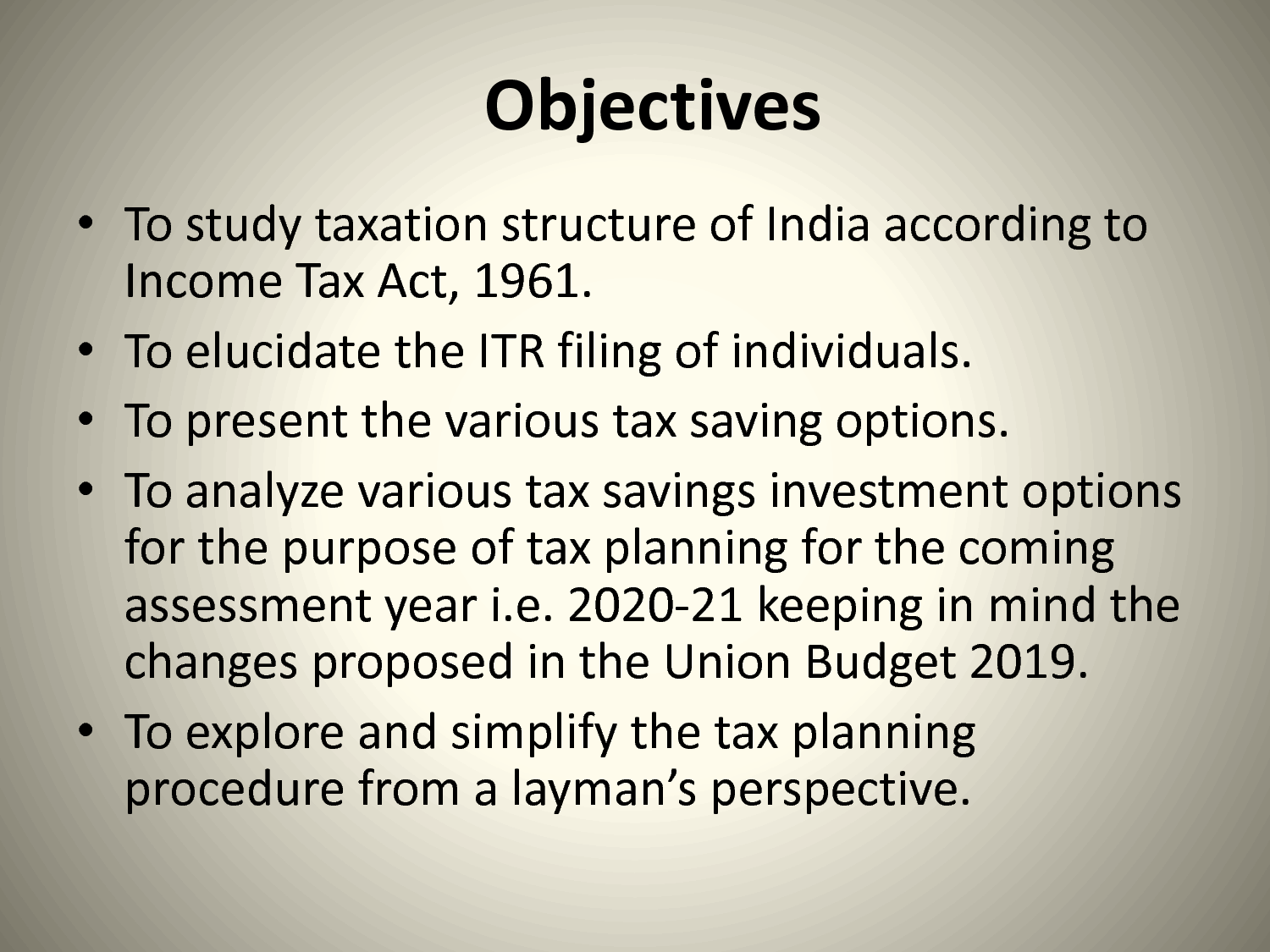Home>Finance>When Should I Sell Mutual Funds For Tax Planning Purposes


Finance
When Should I Sell Mutual Funds For Tax Planning Purposes
Published: January 21, 2024
Discover the best time to sell mutual funds for optimal tax planning. Explore expert advice and strategies in finance to maximize your returns.
(Many of the links in this article redirect to a specific reviewed product. Your purchase of these products through affiliate links helps to generate commission for LiveWell, at no extra cost. Learn more)
Table of Contents
- Introduction
- Understanding Mutual Funds and Tax Planning
- Capital Gains and Taxes on Mutual Funds
- Factors to Consider when Selling Mutual Funds for Tax Purposes
- Holding Period and Tax Implications
- Assessing the Performance of Mutual Funds
- Strategies for Selling Mutual Funds for Tax Planning
- Tax-Efficient Investing with Mutual Funds
- Seeking Professional Advice for Tax Planning with Mutual Funds
- Conclusion
Introduction
When it comes to financial planning, understanding how to optimize your investments for tax purposes is crucial. One avenue to consider is selling mutual funds for tax planning. Mutual funds are popular investment vehicles that offer diversification and professional portfolio management. However, they can also have tax implications that investors need to be aware of.
In this article, we will delve into the topic of selling mutual funds for tax planning purposes. We will explore the factors to consider when making the decision to sell, the tax implications involved, and strategies you can employ to optimize your tax position. Whether you are an experienced investor or just starting out, understanding the tax implications of your mutual fund investments can help you make informed decisions and potentially save on taxes.
It’s important to note that tax laws and regulations can vary depending on your jurisdiction. Therefore, it’s always advisable to consult with a licensed tax professional or financial advisor when making tax-related decisions.
Understanding Mutual Funds and Tax Planning
Mutual funds are investment vehicles that pool money from multiple investors to invest in a diversified portfolio of securities such as stocks, bonds, and other assets. They are managed by professional fund managers who make investment decisions on behalf of the investors. One of the key advantages of mutual funds is their ability to provide diversification, which helps to spread the risk across various securities.
When it comes to tax planning, mutual funds can have both positive and negative implications. On the positive side, certain types of mutual funds, such as index funds or tax-efficient funds, are designed to minimize taxes. These funds aim to keep turnover and capital gains distributions to a minimum, which can be beneficial in terms of tax efficiency.
However, it’s important to be aware that selling mutual funds can trigger tax consequences. When you sell a mutual fund, you may incur taxable capital gains or losses. Capital gains are the profits you earn from selling an investment, while capital losses are the losses you incur. The tax treatment of these gains or losses will depend on the holding period and whether they are classified as short-term or long-term.
Short-term capital gains are gains made on investments held for one year or less, and they are taxed at your ordinary income tax rate. On the other hand, long-term capital gains are gains made on investments held for more than one year and are taxed at a lower rate, typically ranging from 0% to 20% depending on your income level.
Understanding the tax implications of your mutual fund investments can help you make informed decisions and potentially optimize your tax position. By carefully considering the tax consequences, you can strategically sell mutual funds and potentially minimize your tax liability.
Capital Gains and Taxes on Mutual Funds
When it comes to mutual funds, capital gains and taxes are closely intertwined. Capital gains are the profits made from selling investments, and they can be either short-term or long-term depending on the holding period. Understanding how capital gains are taxed on mutual funds is essential for effective tax planning.
Short-term capital gains on mutual funds are taxed at your ordinary income tax rate, which can be as high as 37% for the highest income earners. This means that if you sell a mutual fund that you have owned for less than a year and realize a gain, you will need to pay taxes on that gain at your applicable tax rate.
On the other hand, long-term capital gains on mutual funds are generally taxed at a lower rate. The tax rates for long-term capital gains are typically 0%, 15%, or 20%, depending on your income level. This favorable tax treatment is aimed at encouraging long-term investing and providing incentives for investors to hold their investments for an extended period.
It’s worth noting that mutual funds can also distribute capital gains to their shareholders, even if the investor has not sold any shares. These distributions, known as capital gains distributions, are taxable to the shareholders in the year they are received. The distribution is typically made at the end of the year and represents the fund’s realized gains from its portfolio activity throughout the year. As an investor, you will need to include these distributions in your income and pay taxes on them, even if you reinvest them back into the fund.
It’s important to keep track of capital gains distributions from mutual funds, as they can impact your tax liability. Before you decide to sell a mutual fund, consider whether the fund is likely to make a capital gains distribution and how that distribution could affect your taxes. This information can typically be found in the fund’s prospectus or by contacting the fund company directly.
Understanding the tax implications of capital gains on mutual funds is crucial for effective tax planning. By considering the tax rates for short-term and long-term gains and being aware of capital gains distributions, you can make more informed decisions when it comes to buying, selling, or holding mutual funds.
Factors to Consider when Selling Mutual Funds for Tax Purposes
When deciding to sell mutual funds for tax planning purposes, there are several key factors to consider. Making the right decision requires a careful evaluation of these factors to minimize potential tax implications and optimize your overall financial position. Let’s take a closer look at some of these crucial considerations.
1. Holding Period: The length of time you have held the mutual fund can impact the tax consequences of selling. Short-term capital gains are taxed at a higher rate than long-term capital gains. If you have held the investment for less than a year, selling may result in a higher tax bill. On the other hand, if you have held the mutual fund for over a year, you may qualify for favorable long-term capital gains tax rates.
2. Capital Gains Distributions: It’s important to be aware of any upcoming capital gains distributions from the mutual fund. These distributions can occur even if you haven’t sold any shares, and they can impact your tax liability. Consider whether it’s a good time to sell based on anticipated capital gains distributions, as you may end up paying taxes on gains you didn’t directly realize.
3. Tax Bracket: Your tax bracket is an essential factor to consider when selling mutual funds. If you are in a higher tax bracket, selling mutual funds could result in a larger tax bill. On the other hand, if you are in a lower tax bracket, selling may have less impact on your overall tax liability. Understanding your tax bracket can help you make a more informed decision about when to sell.
4. Other Income and Deductions: Take into account your other sources of income and deductions when evaluating the tax implications of selling mutual funds. If you have significant deductions or losses that can offset the capital gains, selling may be more beneficial from a tax perspective. Conversely, if you have minimal deductions or sources of income that push you into a higher tax bracket, selling may result in a larger tax burden.
5. Future Investment Plans: Consider your future investment plans when deciding whether to sell mutual funds for tax purposes. If you plan to reinvest the proceeds into a different investment, such as a tax-advantaged account, you may be able to defer taxes or enjoy other tax benefits. Analyzing how your future investments can impact your overall tax position is crucial in making an informed decision.
It’s also important to keep in mind that tax laws can change, and what may be a favorable tax strategy now may not be in the future. Therefore, it’s advisable to consult with a tax professional or financial advisor to evaluate the specific factors related to your unique financial situation before making any decisions to sell mutual funds for tax purposes.
Holding Period and Tax Implications
The holding period of your mutual funds can have significant tax implications when it comes to selling for tax planning purposes. It determines whether the gains or losses you incur upon selling will be classified as short-term or long-term, affecting the tax rates applied to those gains or losses. Understanding the holding period and its consequences is essential for effective tax planning. Let’s explore further.
Short-term capital gains are profits made from selling mutual funds that have been held for one year or less. These gains are subject to taxation at your ordinary income tax rate. Depending on your tax bracket, this rate can be as high as 37%. Selling mutual fund shares that have been held for a short period may result in a higher tax liability compared to long-term capital gains.
On the other hand, long-term capital gains are gains made from selling mutual funds that have been held for more than one year. The tax rates for long-term capital gains are generally lower compared to ordinary income tax rates. Depending on your taxable income, the long-term capital gains tax rate can range from 0% to 20%. The longer you hold your mutual funds, the greater the potential for enjoying these lower tax rates on your gains.
It’s important to note that the holding period starts on the day after you acquire the mutual fund shares and ends on the day you sell them. Therefore, the specific dates of purchase and sale are crucial in determining whether the gains or losses will be classified as short-term or long-term.
By carefully considering the holding period, you can make strategic decisions about when to sell your mutual funds to minimize your tax liability. If you are approaching the one-year mark of holding a mutual fund and anticipate significant gains, it may be advantageous to wait a little longer before selling to benefit from the more favorable long-term capital gains tax rates.
However, there may be situations where selling before the one-year mark makes sense. For example, if you have experienced significant losses and want to offset gains in other parts of your portfolio or if you want to rebalance your asset allocation for investment purposes, selling before the one-year mark may be a valid strategy.
It’s worth noting that tax laws can change, and holding periods may have different implications in different jurisdictions. It’s crucial to consult with a tax professional or financial advisor to understand the specific tax rules applicable to your situation and make informed decisions regarding the holding period and its impact on your tax planning strategy.
Assessing the Performance of Mutual Funds
When evaluating whether to sell mutual funds for tax planning purposes, assessing the performance of the funds is an important consideration. Understanding the performance of your mutual funds can help you determine whether they are meeting your investment goals and whether it makes sense to continue holding them or consider selling. Here are some key factors to consider when assessing the performance of mutual funds.
1. Returns: The returns generated by a mutual fund are a crucial measure of its performance. Review the fund’s historical returns, both short-term and long-term, to get a sense of how it has performed over various market cycles. Compare the returns to relevant benchmarks and peer funds to gauge how well the fund is performing relative to its peers in the same category.
2. Risk-adjusted Measures: While returns are important, it’s also essential to consider risk-adjusted measures of performance. Factors such as volatility, standard deviation, and beta can provide insights into the fund’s risk profile. A fund that generates high returns but exhibits high volatility may not be suitable for all investors. Evaluate the risk measures to ensure they align with your risk tolerance and investment objectives.
3. Expense Ratio: The expense ratio is the annual fee charged by the mutual fund for managing the portfolio. A high expense ratio can eat into your investment returns over time. Compare the expense ratio of the fund to similar funds in its category to assess if it is reasonable and competitive. Lower expense ratios can be beneficial in maximizing your after-tax returns.
4. Fund Manager and Strategy: Evaluate the fund manager’s track record and experience. Look for managers who have demonstrated consistent performance and a sound investment strategy. Consider the fund’s investment approach, whether it aligns with your investment philosophy, and if it has delivered consistent results over time.
5. Fund Size and Liquidity: The size of a mutual fund can impact its performance and ability to execute its investment strategy effectively. Large funds may face challenges in maintaining agility and finding suitable investment opportunities. Additionally, consider the liquidity of the fund—how easily you can buy or sell shares. Funds with low liquidity can have bid-ask spreads or redemption fees that may affect your ability to exit the investment when needed.
By thoroughly analyzing these performance factors, you can make a more informed decision about whether to continue holding a mutual fund or consider selling it for tax planning purposes. Keep in mind that past performance is not indicative of future results. It’s crucial to regularly review the performance of your mutual funds and assess whether they continue to align with your investment goals and risk tolerance.
Remember to consult with a financial advisor or investment professional to evaluate the performance of your mutual funds in light of your overall financial plan and tax planning objectives.
Strategies for Selling Mutual Funds for Tax Planning
When it comes to selling mutual funds for tax planning purposes, there are several strategies you can employ to minimize your tax liability and optimize your overall financial position. These strategies take advantage of tax rules and regulations to help you strategically sell your mutual fund investments. Here are some effective strategies to consider:
1. Tax Loss Harvesting: Tax loss harvesting involves selling mutual funds at a loss to offset capital gains and potentially reduce your overall tax liability. By strategically selling investments that have declined in value, you can generate capital losses that can be used to offset realized capital gains. If your capital losses exceed your capital gains, you can use the excess losses to offset up to $3,000 of ordinary income, with any remaining losses carried forward to future years.
2. Sell Mutual Funds in a Low-Income Year: If you anticipate having a lower income year, consider selling mutual funds with accumulated gains. By selling the funds in a year when your income is lower, you may be able to take advantage of lower tax rates on long-term capital gains. This strategy allows you to minimize your tax liability by capitalizing on the lower tax bracket in that particular year.
3. Offset Capital Gains with Capital Loss Carryforwards: If you have capital loss carryforwards from previous years, consider selling mutual funds with gains to offset those gains with the losses carried forward. This strategy allows you to use the losses from previous years to offset any taxable gains realized in the current year. By strategically utilizing your capital loss carryforwards, you can potentially reduce your tax liability when selling mutual funds.
4. Asset Location Strategy: Another strategy for tax planning with mutual funds is to consider the asset location. Asset location refers to the allocation of specific investments in different types of accounts, such as taxable accounts and tax-advantaged retirement accounts. By placing tax-efficient mutual funds in taxable accounts and tax-inefficient funds in retirement accounts, you can potentially minimize the taxes paid on investment gains.
5. Charitable Donations: If you are charitably inclined, another strategy to consider is donating appreciated mutual fund shares directly to a charitable organization. By donating the shares instead of selling them, you can avoid paying capital gains taxes on the appreciation while also potentially receiving a tax deduction for the fair market value of the shares donated.
It’s important to note that while these strategies can provide potential tax benefits, they should be implemented after careful consideration of your individual circumstances and in consultation with a tax professional or financial advisor. Tax laws can be complex and vary depending on your jurisdiction, so seeking professional advice is crucial to ensure compliance with applicable regulations.
By implementing these tax planning strategies, you can strategically sell mutual funds to minimize your tax liability, optimize your overall financial position, and make the most of your investments.
Tax-Efficient Investing with Mutual Funds
When considering mutual funds for tax planning purposes, it’s important to explore strategies for tax-efficient investing. Tax-efficient investing aims to minimize the tax impact of your investments, allowing you to keep more of your investment returns. Here are some key strategies to consider for tax-efficient investing with mutual funds:
1. Index Funds and ETFs: Index funds and exchange-traded funds (ETFs) are designed to track a specific market index rather than actively managed by fund managers. These funds typically have lower turnover and fewer capital gains distributions compared to actively managed funds. By investing in index funds and ETFs, you can potentially reduce the tax implications associated with frequent portfolio turnover.
2. Mutual Funds with Tax Efficiency: Some mutual funds are explicitly designed to be tax-efficient, aiming to minimize taxable distributions and capital gains. These funds employ various strategies, such as tax-loss harvesting, low turnover, and focused on tax-efficient asset allocation, to help investors minimize taxes. Consider investing in these tax-efficient funds to optimize your after-tax returns.
3. Buy and Hold Strategy: Implementing a buy and hold strategy can help reduce the tax impact of frequent buying and selling. By holding investments for an extended period, you can benefit from long-term capital gains tax rates if you sell the fund at a profit. This strategy allows you to defer capital gains taxes and potentially reduce your overall tax liability.
4. Asset Allocation: Carefully consider the allocation of your assets among different types of accounts, such as taxable accounts and tax-advantaged retirement accounts. By strategically placing tax-efficient investments, such as index funds or tax-managed funds, in taxable accounts, and tax-inefficient investments, such as bonds or actively managed funds, in retirement accounts, you can potentially reduce the taxes paid on investment gains.
5. Tax-Loss Harvesting: Tax-loss harvesting involves strategically selling investments at a loss to offset capital gains and potentially reduce your taxable income. By selectively selling mutual funds that have declined in value, you can generate capital losses that can be used to offset capital gains realized elsewhere in your portfolio. This strategy can help reduce your overall tax liability and potentially improve your after-tax returns.
It’s crucial to consider these tax-efficient investing strategies in light of your individual circumstances and consult with a tax professional or financial advisor. Tax laws and regulations can vary, and there may be specific rules that apply regarding tax-efficient investing in your jurisdiction.
By implementing these tax-efficient investing strategies, you can potentially reduce the tax impact of your mutual fund investments, maximize your after-tax returns, and achieve your long-term financial goals.
Seeking Professional Advice for Tax Planning with Mutual Funds
Tax planning with mutual funds can be complex, and the tax implications can vary depending on your unique financial circumstances and jurisdiction. Therefore, seeking professional advice from a tax professional or financial advisor is highly recommended. Here are some key reasons why consulting a professional is crucial for effective tax planning with mutual funds:
1. Expertise and Knowledge: Tax professionals and financial advisors specialize in tax planning and investment strategies. They have the knowledge and expertise to navigate the complex tax laws and regulations related to mutual fund investments. By consulting with a professional, you can benefit from their experience in identifying tax-saving opportunities and developing a tailored tax plan that aligns with your financial goals.
2. Individualized Guidance: Every investor has different financial goals, risk tolerance, and tax situation. A tax professional or financial advisor can provide personalized guidance based on your specific circumstances. They can assess your investment portfolio, review your tax situation, and provide recommendations that are customized to your needs, helping you make informed decisions when it comes to tax planning with mutual funds.
3. Tax Law Updates: Tax laws and regulations are subject to change. A tax professional or financial advisor stays up-to-date with the latest tax law updates and can provide insights on how these changes may impact your tax planning strategies. They can help ensure that your tax planning is in line with the most current regulations, maximizing your tax savings and minimizing potential tax-related risks.
4. Optimization of Retirement Accounts: Mutual funds can be held within various types of retirement accounts, such as IRAs, 401(k)s, or Roth IRAs. A tax professional or financial advisor can guide you on how to maximize the tax advantages offered by these retirement accounts. They can provide recommendations on which mutual funds to hold within each account type to minimize taxes on distributions and withdrawals, helping you optimize your retirement savings.
5. Comprehensive Financial Planning: Tax planning should be integrated into your overall financial plan. A tax professional or financial advisor can assist in developing a comprehensive strategy that aligns your investment goals, tax planning, risk management, and estate planning. By taking a holistic approach, they can help you achieve long-term financial success and ensure that your tax planning with mutual funds is in sync with your broader financial objectives.
Remember that tax planning involves a balance between minimizing taxes and making sound investment decisions. While it’s prudent to seek professional advice, ultimately, you will need to make decisions based on your risk tolerance, investment preferences, and financial goals.
By working with a tax professional or financial advisor, you can gain valuable insights and guidance to optimize your tax planning with mutual funds, helping you make informed decisions and potentially maximize your after-tax returns.
Conclusion
Tax planning is an essential aspect of managing your mutual fund investments effectively. Understanding the tax implications of buying, holding, and selling mutual funds can help you minimize your tax liability and optimize your overall financial position. By considering the factors such as holding period, capital gains distributions, and your individual tax situation, you can make informed decisions about when to sell mutual funds for tax planning purposes.
Assessing the performance of your mutual fund investments and implementing tax-efficient strategies, such as tax loss harvesting and asset location, can further enhance your tax planning efforts. Seeking professional advice from a tax professional or financial advisor is highly recommended to navigate the complexities of tax laws and regulations, and to develop a customized tax plan that aligns with your financial goals.
Remember that tax laws can change, and what may be a suitable tax strategy now may not be in the future. Regularly reviewing and adjusting your tax plan, in coordination with your overall financial plan, is essential for achieving long-term success. By staying proactive and adapting your tax planning strategies as needed, you can potentially minimize taxes, maximize your after-tax returns, and steer your mutual fund investments toward reaching your financial objectives.
Ultimately, tax planning with mutual funds requires careful consideration and consultation with professionals who can provide tailored advice based on your specific circumstances. By taking a strategic and proactive approach to tax planning, you can make the most of your mutual fund investments and optimize your financial outcomes.














